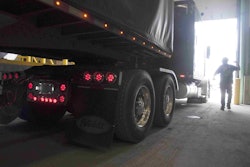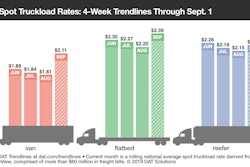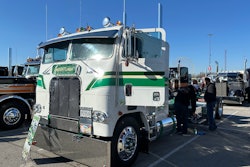Likely of little surprise to drivers, detention times at shippers and receivers has grown longer, and long detention times have become more frequent, according to a new report from the American Transportation Research Institute. Drivers reported that nearly 10% of detention periods last six hours or longer. What’s more, reefer haulers are the most impacted by excessive detention periods, according to ATRI’s report, with more than a third of their detention periods lasting four or more hours.
The study was first conducted in 2014 and was updated in 2018 with information regarding electronic logs’ impacts on detention. The full study can be found here.
Respondents to the study indicated that more than a quarter (25.8%) of their dwell times lasted two or more hours, with 9.3% of delays lasting six or more hours. Both of these are increases from 2014, according to ATRI’s numbers. Drivers also reported seeing their appointments being delayed more often than in 2014.
Refrigerated freight and bulk/food haulers were detained for the longest durations, according to the report, with reefer haulers being delayed four or more hours 36.5% of the time.
Of note in ATRI’s findings is that women truckers were 83.3% more likely than men to be delayed six or more hours. The firm says this could be attributed to the fact that a higher percentage of women haul reefer freight than men. ATRI also interviewed a number of women who said they tend to be more patient than men, whereas men are more likely to demand action at shippers and receivers.
The majority of drivers responding to the survey (79% in the 2018 version) indicated they had run out of available hours of service while at a customer facility due to detention, and that delays had a significant impact on their HOS compliance. However, despite ELDs electronically recording wait times, only 17% of drivers reported sharing their ELD data with customers to document and validate how long they had been detained.
According to the study, most fleets and drivers agree that “excessive detention” begins after two hours, and respondents said that’s an appropriate point to start hourly detention fees. The average per-hour fee charged by fleets was $63.71, which is slightly below the average operational cost per hour of $66.65, according to ATRI’s Operational Costs of Trucking research. Drivers indicated in the survey that their detention compensation “was not adequate for covering fuel expenses or lost wages.”










